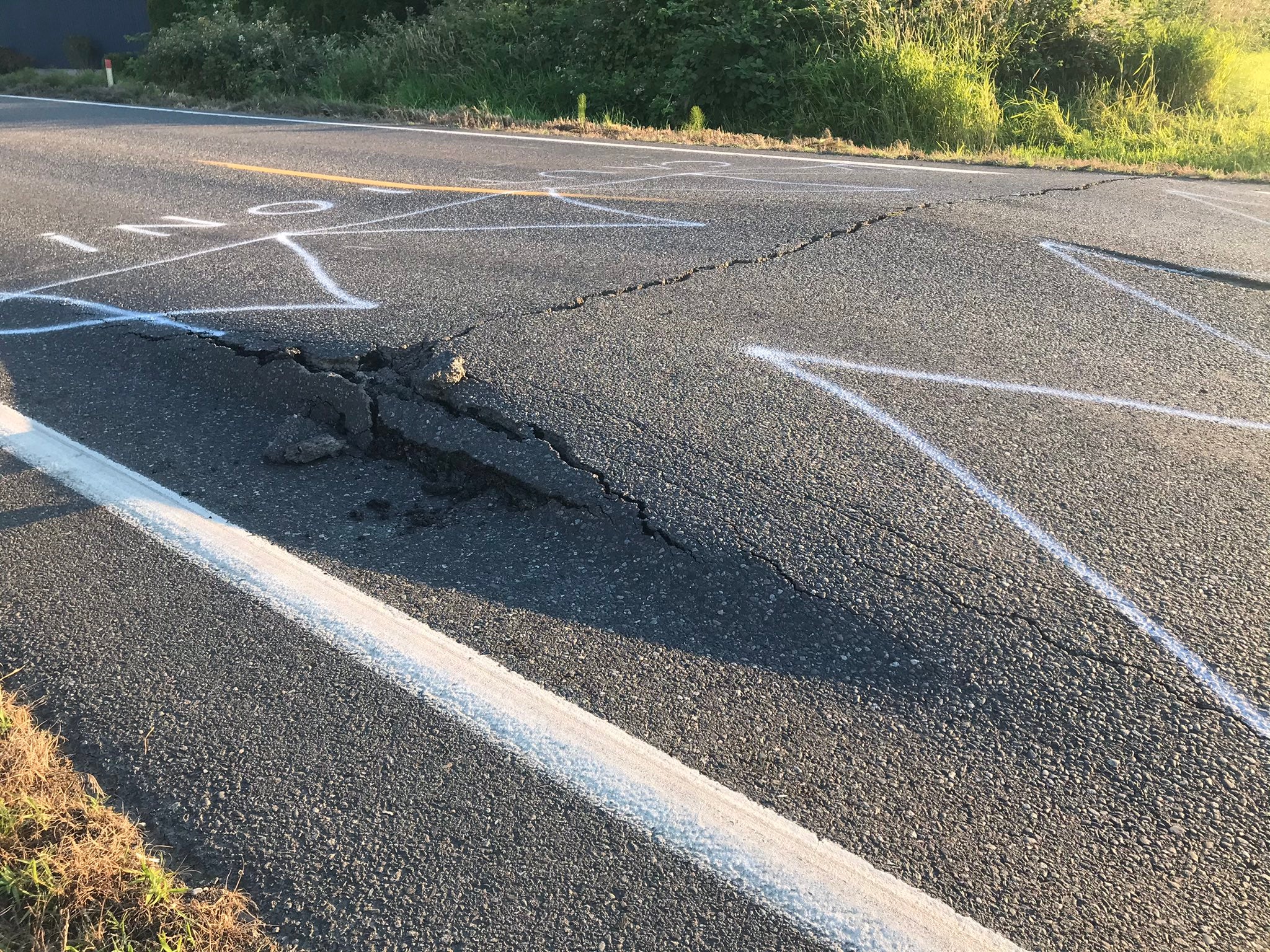Train cables melt and roads buckle in Northwest’s 46C heatwave
‘Additional impact likely tomorrow with another day of extreme heat. Remain vigilant on your commutes,’ warns national weather body

Your support helps us to tell the story
From reproductive rights to climate change to Big Tech, The Independent is on the ground when the story is developing. Whether it's investigating the financials of Elon Musk's pro-Trump PAC or producing our latest documentary, 'The A Word', which shines a light on the American women fighting for reproductive rights, we know how important it is to parse out the facts from the messaging.
At such a critical moment in US history, we need reporters on the ground. Your donation allows us to keep sending journalists to speak to both sides of the story.
The Independent is trusted by Americans across the entire political spectrum. And unlike many other quality news outlets, we choose not to lock Americans out of our reporting and analysis with paywalls. We believe quality journalism should be available to everyone, paid for by those who can afford it.
Your support makes all the difference.The soaring record breaking heatwave in the Pacific Northwest which has caused train wires to melt and roads to crack is expected to continue, according to the national weather authority.
The National Weather Service has urged people to stay safe as the worrying trend is expected to continue as temperatures cause damage to transport links. This includes the asphalt on the highway, which expanded and ruptured due to the hot weather.
Train cables have also melted as the temperatures smash previous records. In places such as Portland in Oregon it hit 44C , beating the previous all time high of 42C.
Aside from traffic problems, the weather has also caused delays to Olympic qualifying events in nearby Eugene, Oregon. The track and field events were hindered due to everyone being required to leave the building after it hit 43C, beating the town’s record of 42C, according to SF Gate.
Kristi Elbi, a climate scientist at the The University of Washington told the AP that the worrying trend gave insight about what is to come due to the climate crisis.
"There have been several instances of road impacts across Western Washington today, including along I-5 at times," Seattle’s branch of the National Weather Service posted on Twitter. “Additional impact likely tomorrow with another day of extreme heat. Remain vigilant on your commutes.”
Images of the impacted roads were shared by state troopers in Washington, right by the border with Canada.
“State Route 554 milepost near Everson, Wa is currently closed. The asphalt roadway is buckling and unsafe for travel. WSDOT is advised and detours are currently being set up,” wrote the Washington State Patrol.
The Washington State Department of Transportation informed travellers of a concrete panel appearing at Interstate 405 in Tukwila, 12 miles from Seattle, on Interstate 5 heading northbound.
“A section of pavement has come loose on NB I-405 at I-5 in Tukwila. The SB I-405 ramp to northbound I-5 is closed, the HOV ramp remains open. WSP has it coned off and our maintenance crew is en route to make repairs,” they posted on Twitter
They explained that the heat was contributing to the problem.
“Crews are removing the damaged panel and filling it back in,” the state’s Department of Travel announced. “No estimated time for getting these lanes and ramp back open. Fortunately, not much back up at the moment.”
Richard Bann, a meteorologist at the National Weather Service outlined why this is happening , calling it a “heat dome”, and cited a lack of cloud cover as part of the reasoning behind it.
“The Pacific north-west got caught in a region where a series of feedbacks set up these very warm temperatures – no, hot temperatures – with very little cloud cover and very warm temperatures at night too,” he told The Guardian.
He said it will continue for a while longer, and said the some of the issue was that the area had no adapted to the extreme weather conditions.
He said: “When it gets really hot here, we haven’t learned how to deal with it the same way other parts of the country have.”
Join our commenting forum
Join thought-provoking conversations, follow other Independent readers and see their replies
Comments